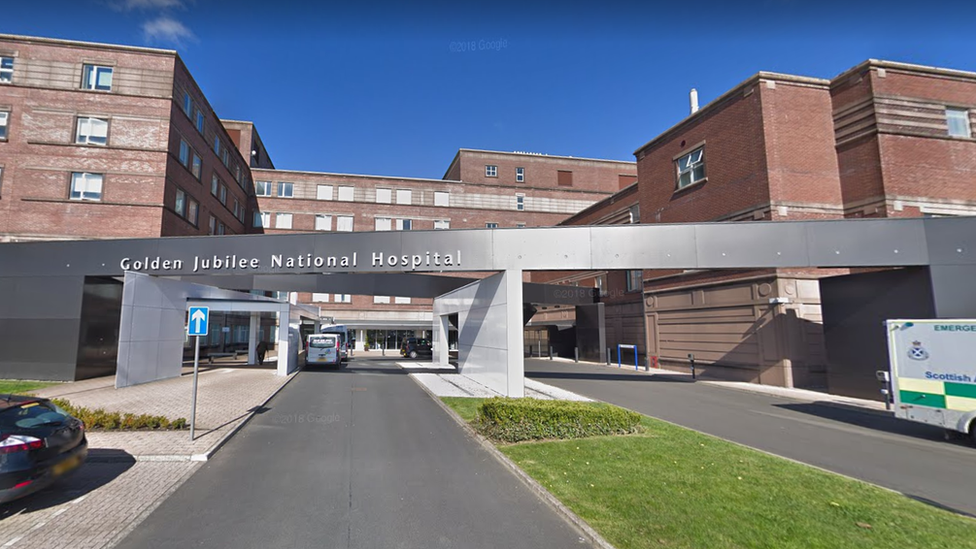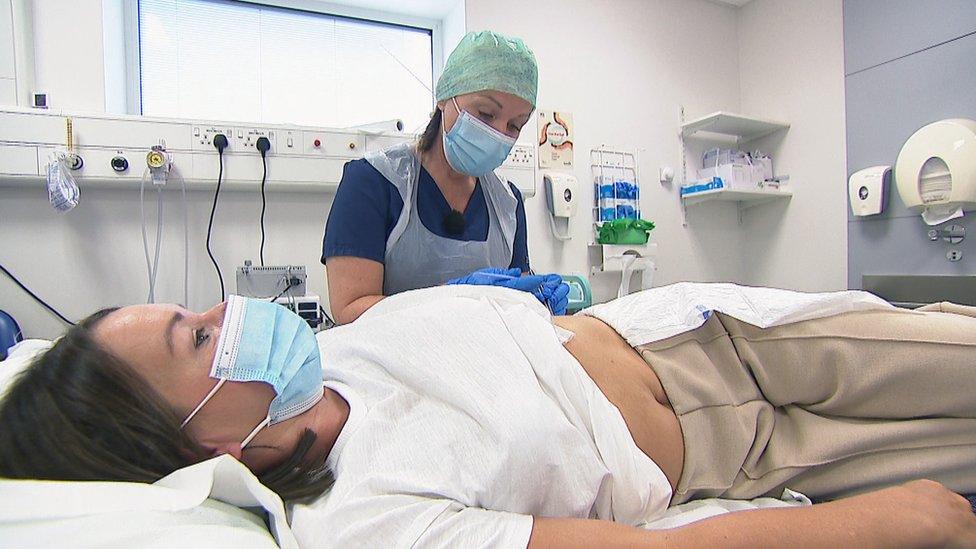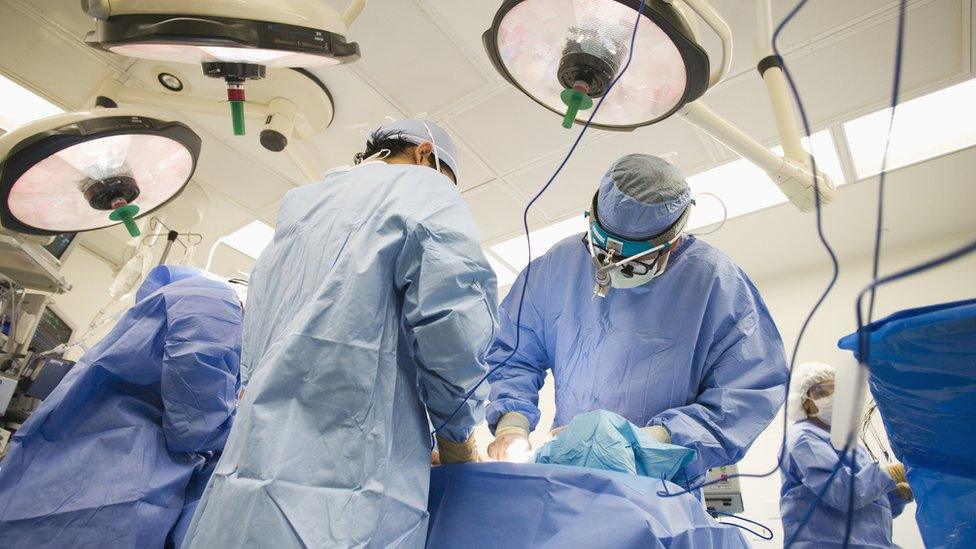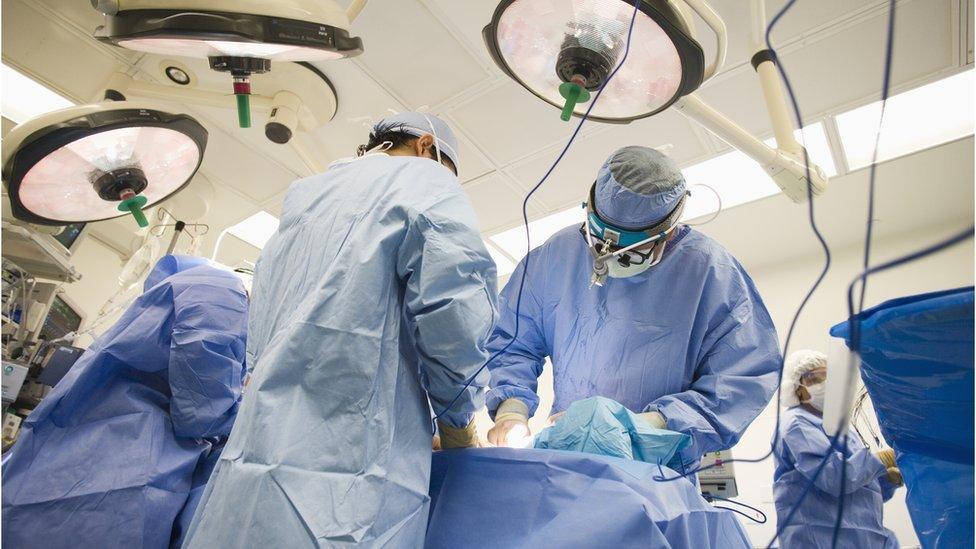Orthopaedic patients face seven-year wait for surgery
- Published

Orthopaedic patients in NHS Highland face a wait of up to seven years for surgery, new research has found.
A University of Aberdeen study said the worst case estimate would apply if surgical rates did not increase for those listed in July this year.
Researchers also discovered the average wait across Scotland's 14 health boards could be as long as two years and three months.
The Scottish government said it was working to maximise NHS capacity.
Luke Farrow, clinical research fellow, warned that the significance of the delays could not be underestimated.
He said: "Prolonged waits for certain orthopaedic procedures can have a major negative impact on patient health.
"This occurs both in terms of deterioration in quality of life whilst awaiting surgery, as well as potential negative connotations for post-operative recovery and longer-term health in addition to reduced independence and increased social care needs."
The problem has been exacerbated by the Covid pandemic, which saw routine operations put on hold.
Mr Farrow added: "If the barriers to significant expansion of current activity are not addressed urgently, then waiting lists will continue to deteriorate and patients will continue to come to harm as a result."
The study, published in the Bone and Joint Research journal, predicts the average waiting time for orthopaedic surgery in Scottish regions according to current and forecasted factors.

The Golden Jubilee Hospital in Clydebank is one of the National Treatment Centres being used to help clear the backlog of non-urgent operations
The team calculated predicted waiting times for surgery, determined the mismatch between current supply and demand, and assessed the feasibility of the Scottish government's target of a one-year wait time by 2024.
It examined four different scenarios with the worst case where activity remains at current levels for the foreseeable future.
The best-case scenario would involve activity retuning to pre-pandemic volumes and being bolstered by proposed additional capacity at National Treatment Centres.
This would bring the national average waiting time down to one year and three months.
While NHS Highland was out on its own with a worst case waiting time of seven years, the study found four other health boards exceeded the national average:
NHS Lothian - three years and three months
NHS Borders - three years
NHS Greater Glasgow & Clyde - two years and seven months
NHS Tayside - two years and five months
The team found the significant current annual case deficit would not be resolved even in the best case scenario.
This would involve a return to pre-pandemic activity and a 22% boost in capacity from the National Treatment Centres.
As a result, it is anticipated waiting lists will continue to grow annually, further adding to the current backlog.
Mr Farrow added that current admissions for routine treatment were only 52.2% of activity in 2019, before the pandemic hit.
Other factors which could affect future demand include hip and knee arthroplasty services which are expected to rise by up to 28% and 34% respectively in 2038.
In addition, the study highlights the extensive challenges in meeting the current Scottish government targets.
For example, current activity would have to immediately more than double to achieve a one-year wait by September 2024.
In June, First Minister Nicola Sturgeon said it was unacceptable for patients to have to wait more than two years for NHS treatment.
'Progress continues'
The Scottish government said it introduced ambitious targets in July for NHS Scotland to address the backlog of planned care, which was exacerbated by the pandemic.
A spokesman said: "We are working with NHS boards to maximise capacity to meet these targets and recognise the impact long waiting times can have on patients
"Since the introduction of the targets, the latest statistical data shows progress on tackling the long waits continues, with almost 53,500 patients seen in the quarter to the end of September - the highest number in one quarter since the start of the pandemic."
He added that four National Treatment Centres due were due to open over the next year - NHS Fife, NHS Forth Valley, NHS Highland and the second phase of the NHS Golden Jubilee.
The four centres will over provide more than 12,250 additional procedures, the majority of which will be in orthopaedics.
- Published30 August 2022

- Published4 August 2022

- Published6 July 2022
